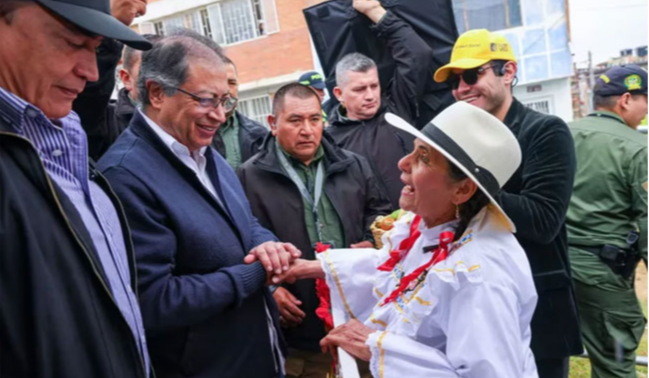
Actions by the Petro government to combat hunger
By María Josefina Arce
Since his electoral campaign and after assuming the presidency of Colombia in August 2022, Gustavo Petro has made the fight against hunger and malnutrition a priority of his government, given the high rates that the South American nation presented.
According to official data, in January of that year 54% of Colombians suffered from food insecurity and half a million children from malnutrition.
That is why the right to food of all citizens occupies a prominent place in the National Development Plan 2022-2026. Availability, access and adequacy of food is one of the axes of the government strategy.
To achieve their objective, the authorities developed various actions from the beginning, such as monetary aid to some two million low-income households and the creation of soup kitchens.
The rates of people suffering from hunger and malnutrition in Colombia have been decreasing in the almost two years of Petro's mandate, but the numbers are still high.
These scourges affect almost a quarter of the country's homes, reveals the latest report from the government and the FAO, the Food and Agriculture Organization of the United Nations.
Hence, in recent days, the so-called Solidarity Supply Points project has been added to the actions already launched, which will be built in the 150 municipalities of Colombian territory with the highest incidence of poverty and hunger.
The initiative, which foresees an investment of about 125 million dollars, was launched in the department of Cundinamarca, specifically in the municipality of Soacha, one of the most affected by this problem.
The government's objective is to extend these solidarity markets to the entire nation to which families with fewer resources can have access, because as President Petro pointed out, hunger is also present in large cities and he cited Bogotá, the capital, as an example. where, he pointed out, the largest number of people affected by this scourge is recorded.
Likewise, the Solidarity Supply Points will function as collection centers for the products of local farmers, thus strengthening the popular economy.
The authorities have specified that this project is based on Decree 684 of June 4, which regulated the National System for the Progressive Guarantee of the Right to Food, the Zero Hunger program and the Observatory of the Right to Food and Nutrition.
This initiative will make it possible to advance the fight against hunger and malnutrition, since in addition to addressing immediate food needs, it will make it possible to establish solid foundations for the economic and social development of the most disadvantaged communities in Colombia.

